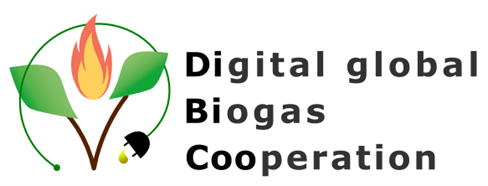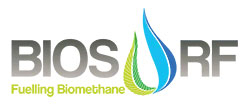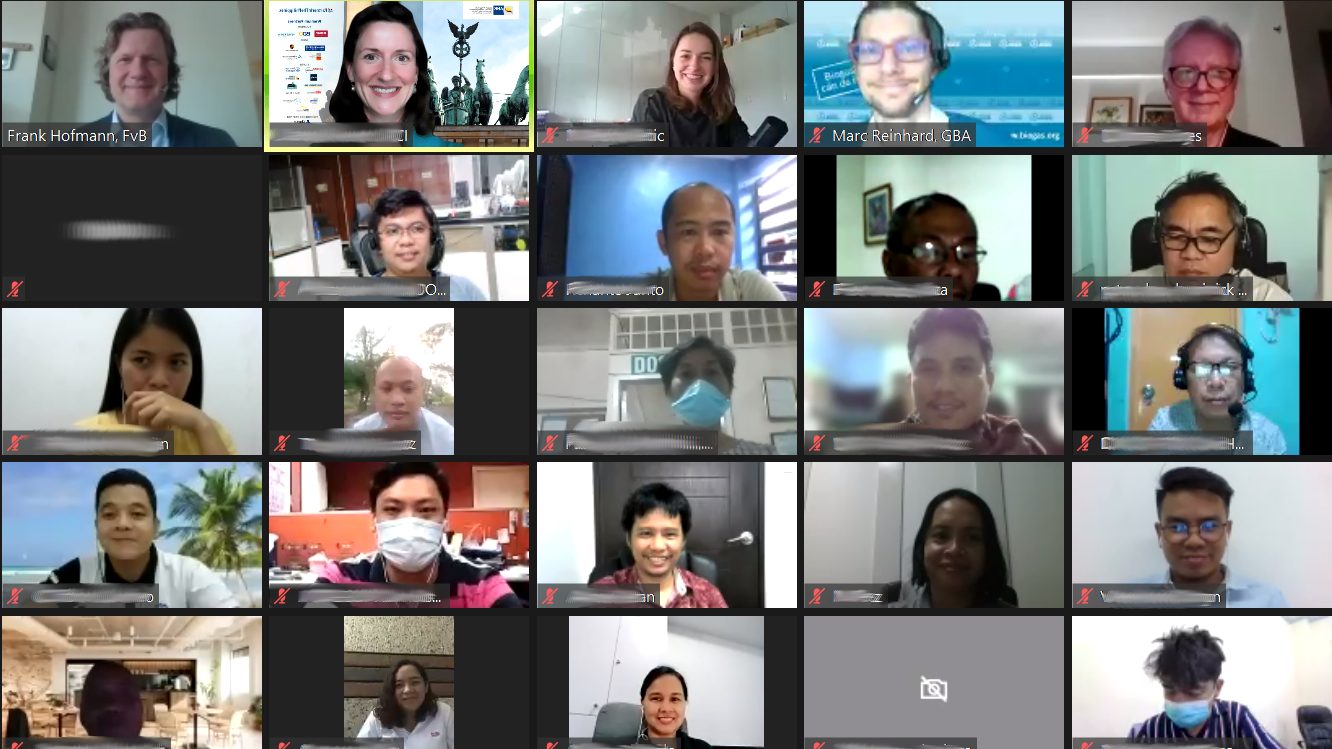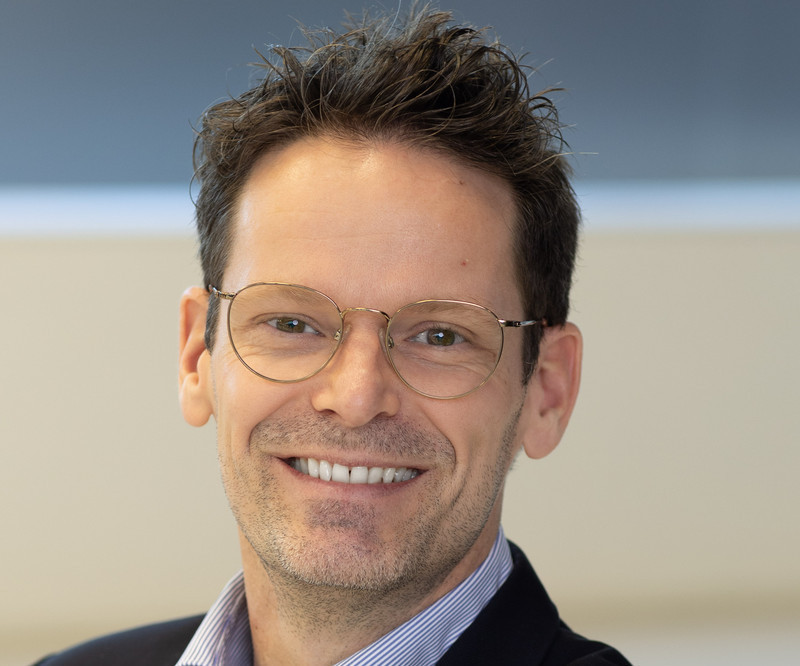Website search
Projects and Commissions
The global development and promotion of biogas is an important focus of the work of the German Biogas Association. With six employees, the International Affairs Department is the largest unit within the Association.
The demand for specialist lectures, training courses on biogas topics, cooperation in international projects and the expansion of other national biogas associations continues to grow. Biogas is becoming an increasingly important renewable energy source. As the world's largest biogas association, Fachverband Biogas e.V. responds to this development with its new English-language website.
Training programme
We also offer a variety of biogas training courses. These range from basic training to more in-depth aspects of construction, safety, financing and more.
Get an → overview of our courses.
Contact us
Development of an inventory of biogas regulations and a roadmap for the implementation of standards
Duration: 2019
Client: United Nations Industrial Development Organisation
The United Nations Industrial Development Organization (UNIDO) implements the Global Environment Facility (GEF) funded project entitled “Sustainable conversion of waste to clean energy for greenhouse gas (GHG) emissions reduction” in collaboration with the government in Kenya. Its main objective is promoting the conversion of waste to clean energy (WTE) as an alternative electricity generation source.
The Energy Regulatory Commission (ERC) regulates the energy sector in Kenya and enforces the standards developed by the Kenya Bureau of Standards (KEBS) according to international standards and best practices. In collaboration with the Kenya Industrial Research and Development Institute (KIRDI) among other stakeholders, KEBS and ERC are working on a national standard for household and commercial Anaerobic Digestion (AD) systems, which will be applied by regulations to all AD plants in Kenya.
The German Biogas Association was assigned with the task of performing prior activities in preparation for this process, namely to gather an inventory of standards around the world, to propose the formation of a technical committee as well as its scope of work and finally, to draft a roadmap for the development and implementation of standards in Kenya (for further information, please see project below).
Provided with this material the relevant stakeholders should be enabled to work out Kenyan standards for industrial biogas plants.
Development of biogas standards
Duration: 2020 – 2021
Client: United Nations Industrial Development Organisation
On behalf of UNIDO (United Nations Industrial Development Organisation), the German Biogas Association and its project partner AKUT Umweltschutz have developed a draft code of practice that is to be translated into a biogas standard for Kenya.
In addition, the trade association and the project team supported the capacity building activities of the Kenyan Information and Best Practice Platform (IBPP) by providing training materials. The IBPP is based at the KIRDI (Kenya Industrial Research and Development Institute). The training material covers the entire spectrum of biogas in about 10 presentations. It covers the basics of anaerobic digestion, digester biology and technology, optimisation of gas production, feedstock, planning, construction, operation and maintenance of biogas plants, utilisation of biogas, biogas safety, biogas digestate, biogas regulations and the financial aspects of biogas projects. This material is supplemented by a biogas guide, which also covers the important topic of the sustainability of biogas.
Other projects
In addition, the association organises several services and small projects such as a biogas study tour, several training courses on the basics and ‘train the trainer’ online and on site as well as various visits to biogas plants.

Digital Biogas Global Cooperation (DiBiCoo)
Duration: 2019 - 2022
DiBicoo was a project supported by the EU in the context of the Horizon 2020 programme for research, technology development and demonstration projects.
The goal of DiBiCoo was to support the European Biogas and Biomethane industry in the preparation of the markets for the sustainable export of biogas/biomethane technologies from Europe into developing and emerging countries. This was achieved by the development and application of innovative digital and non-digital support tools and actions, by knowledge transfer and capacity building as well as by the preparation of demo cases up to the investment stage.
The target countries selected (Argentina, Ethiopia, Ghana, Indonesia and South Africa) were selected because of the high market potential for biogas projects, along with favourable regulatory environment and support schemes in each of these countries.

Duration: 2015 – 2017
Client: H2020 – European Union
From January 2015 until December 2017, the German Biogas Association participated in the BIOSURF project. BIOSURF was a project supported by the EU in the context of the Horizon 2020 programme for research, technology development and demonstration projects.
The goal of BIOSURF was to increase the generation and use of sustainably produced biomethane and to overcome non-technical hurdles in order to enable the international trade of biomethane. The BIOSURF consortium consisted of eleven partners from seven countries (Austria, Belgium, France, Germany, Hungary, Italy and Great Britain).
After the boom years (2007-2014), the biomethane market in Germany has now been stagnating for some time as the feed-in tariffs have been reduced and the bonus for biogas upgrading was eliminated. BIOSURF helped to raise awareness of the important role which biomethane could have in the decarbonisation of the transport sector. Furthermore, thanks to the project several stakeholders started showing interest for the European biomethane trade, which lead to the establishment of ERGaR (European Renewable Gas Registry) in September 2016.
ERGaR is based on the cooperation with national biogas, biomethane and renewable gas registries, covering 10 European countries. The registry is built on the expertise of national renewable gas registries and aims at establishing an independent, transparent and trustworthy documentation scheme for cross-border transfer and mass balancing of renewable gas injected into the European natural gas network. ERGaR will also support the establishment of such registries in every European country and will work towards incorporating all national registries into one scheme.
Client: United Nations Industrial Development Organisation
The Global Environment Facility (GEF) project “Reduction of GHG emission through Promotion of Commercial Biogas Plants”, jointly implemented by the Cambodian Ministry of Environment, Ministry of Agriculture, Forestry and Fisheries and the United Nations Industrial Development Organization (UNIDO), aims at promoting investment in biogas based rural electricity enterprises at commercial pig farms for increasing rural electrification in Cambodia.
The project intends to utilize biogas as a clean energy source to reduce greenhouse gas emissions related to: i) the use of diesel generators on pig farms; and ii) methane emissions from pig manure. The objectives aim at demonstrating and promoting biogas-based energy services as a financially viable, reliable, effective and sustainable mechanism to address on-farm animal waste management while reducing greenhouse gas emissions.
Feasibility studies on the production of biogas were carried out at 12 pig farms in 7 provinces all over Cambodia. It included farms of different types, sizes (1,200 – 15,835 heads) and energy supply situations (on-grid / off-grid). The assessed pig farms currently face certain barriers for the implementation of biogas energy systems:
- Only very few of the assessed pig farms show a good potential for producing biogas at a commercial level and are financially viable – due to limited captive energy demand.
- Only one pig farm has a licence to feed electricity into the grid.
- Some pig farms apply an all-in, all-out pig movement that causes substantial fluctuations in the availability of dung and hence biogas. A constant utilization of biogas power plants is therefore not possible; this again, influences financial viability of the biogas energy system.
This project analyzed alternative concepts of biogas distribution, namely biogas pipelines, biogas backpacks and high-pressue gas cylinders, as well as alternative uses of biogas like cooking, as vehicle fuel and for thermal applications plus the different business models that make all these options economically feasible.
Furthermore, biogas trainings and field missions with the members of the local Biogas Technology and Information Center (BTIC) were part of the activities implemented in Cambodia as part of the knowledge transfer component of the project.
Client: United Nations Industrial Development Organisation
The United Nations Industrial Development Organization (UNIDO) collaborates with the Department of Environmental Affairs (DEA), the Department of Energy (DoE), the Department of Trade and Industry (DTI) and other entities in the project “Promoting organic waste-to-energy and other low carbon technologies in small, medium and micro enterprises (SMMEs) scale: Accelerating biogas market development in South Africa”.
The project aims at promoting market-based biogas technologies in medium, small and micro-sized enterprises in South Africa in connection with the country’s drive to promote the development of the renewable energy and green economy sectors.
One of the main challenges for the development of the biogas sector in South Africa is the lack of knowledge as well as decision-making tools for commercial stakeholders. Through this project, the German Biogas Association in close collaboration with the South African Biogas Industry Association (SABIA) and the German company Anaergia, developed such tools:
- Biogas technology guide book: extensive compilation of biogas topics from biogas utilization, process biology up to topics llike biogas economics considering the local South African situation are included in this publication.
- Biogas project development and appraisal tool is an MS-Office Excel-based tool which allows decision-makers to make a basic evaluation of biogas potential and economical feasibility.
- Biogas project operation manual: directed at persons dealing with the daily activities taking place at the biogas plant, includes topics like monitoring, maintenance, documentation, troubleshooting and many more.
These tools will be further developed by UNIDO and made publicly available, though a date has not yet been communicated.
Biogas trainings (selection)

6 day online training "Waste to Watts", 6 units, 2 – 3 topics per unit
Country: Philippines
Period: 2020 – 2023
Client: Lipp GmbH

6 day online training "Train the Trainer", 6 units, 2 – 3 topics per unit
Country: Kenya
Period: April – July 2022
Client: UNIDO
Including visit to Germany

1 day biogas basics training
Country: Dominican Republic
Period: May 2019
Client: Deutsche Gesellschaft für Internationale Zusammenarbeit (GIZ) GmbH

1 day biogas basics for academic teachers and students
Country: Cambodia
Period: May 2018
Client: UNIDO

